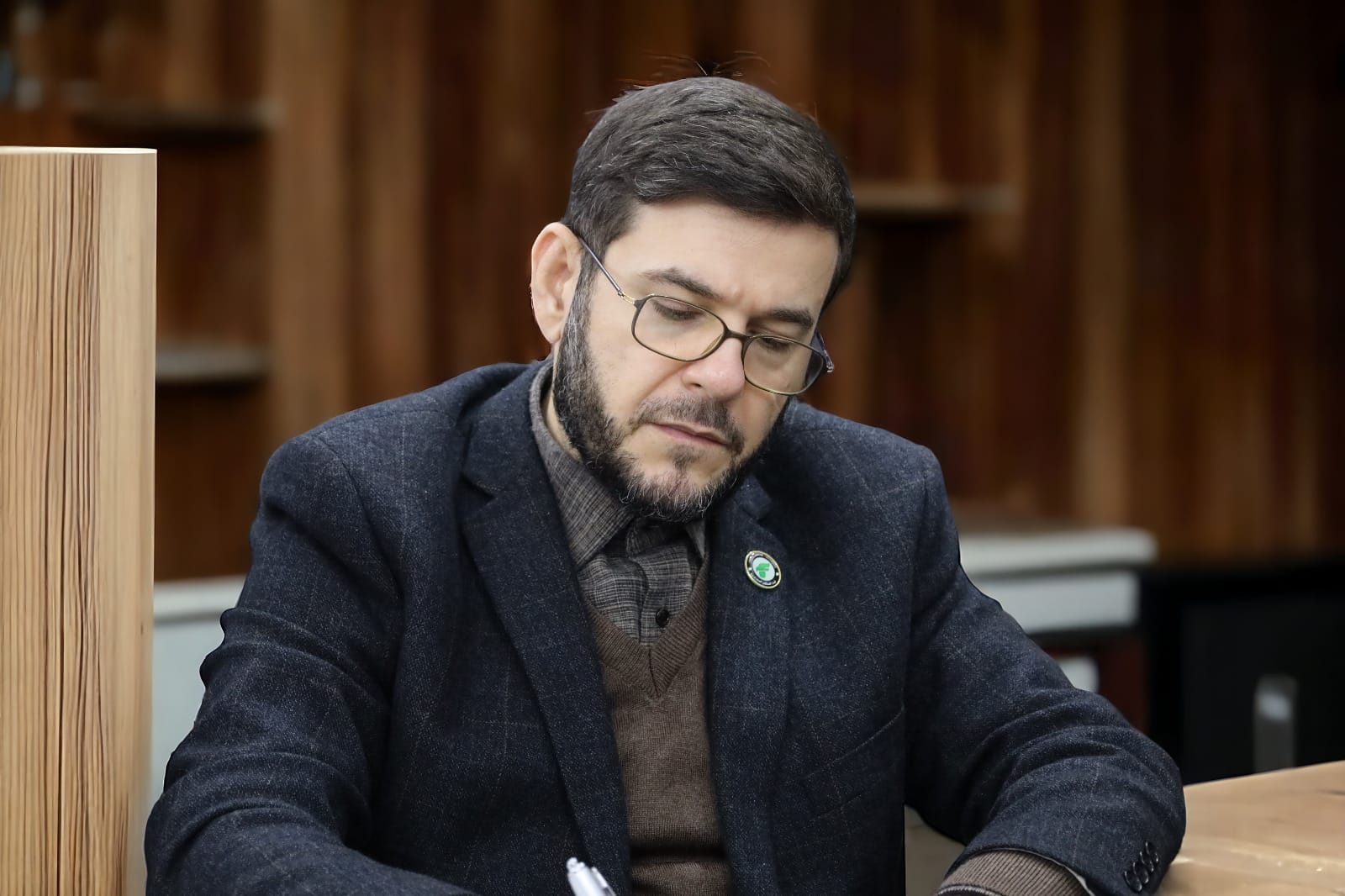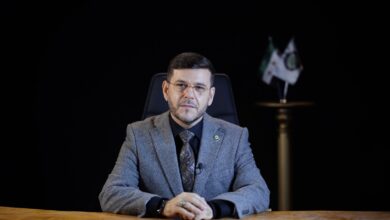Religious Scholars: Role and Significance

Introduction:
The discussion on the role of religion in public life, and in the lives of ordinary people, is broad and complex, with its interpretation and impact varying greatly across cultures and societies.
Generally, this role can be summarized in the following points:
- Religion contributes to shaping the values and ethical standards that govern the behavior of individuals and societies. It also provides answers to major existential questions, defining the meaning of life and death, thereby offering a general framework for human behavior.
- Religion helps unify communities and strengthen social bonds among their members. It provides a shared identity and interactive values, which enhance the sense of belonging and loyalty to society.
- In many societies, including various regions in Syria, religion has played a significant role in organizing social and political life. It has established many social institutions, such as marriage and family, and set the laws and norms governing individual behavior.
- At times, religion acts as a driving force for social change. Many religious movements have led to social and political reforms and advocated for human rights and social justice.
- Religion has also contributed to the development of education and culture in many societies by supporting the establishment of schools and universities and preserving cultural and religious heritage.
- In some countries, religion is a significant factor in politics, with some religious leaders seeking to influence political decision-making. In Syria, the role of religion has been evident during the years of revolution and conflict.
Additionally, there are other aspects of religion’s role in public life. Many people turn to religion for answers to their questions and guidance in their daily lives. Religion, through its leaders, can unite people from diverse cultural and social backgrounds.
At the same time, religion can also lead to divisions and conflicts between different groups.
It might be useful here to mention the challenges that religion faces in public life, the most important of which are:
- Religious pluralism: With the increasing cultural and religious diversity in the world, it has become challenging to achieve consensus among different religious beliefs.
- Secularism: The growing calls for the separation of religion from the state limit the role of religion in public life.
- Religious extremism: Some extremists associated with religion have committed acts of violence in the name of religion, negatively affecting the general perception of religion for many people.
The role of religion in public life is a complex and multifaceted subject that requires a multidimensional perspective. It is essential to respect freedom of belief and promote dialogue and understanding among different religions and cultures.
As outlined earlier, the role of religion in public life can vary depending on the cultural and social context, even within a single country like Syria. It is crucial to distinguish between religion, which carries significant historical contexts, and selective religious extremism within this context.
The Role of Religious Leaders in Public Life:
Similar to religion itself, the role of religious leaders is broad and complex, with its interpretation and impact varying significantly across different cultures and societies. Historically, religious leaders have played pivotal roles in shaping societies and guiding individual behavior, a role that has evolved and changed over time, influenced by political, social, and cultural shifts.
Historical Roles of Religious Leaders:
- Spiritual Leaders: They served as spiritual guides for the community, providing interpretations of religion and setting ethical values and standards.
- Teachers: They were responsible for spreading knowledge and education, and for teaching religion both in reading and writing.
- Judges: This role is not only historical but also evident in Syria, where they have been seen adjudicating disputes and resolving issues.
- Politicians: In some cases, religious leaders participated in political life, a role observed not only historically but also in the present. They may hold leadership positions in the state or opposition institutions due to their symbolic status and popular acceptance.
As for the Role of Religious Leaders in the Modern Era:
In the modern era, the role of religious leaders has diminished in some societies, while remaining strong in others. The nature of this role varies depending on the cultural and political context.
In general, the following roles can be identified:
- Calling to the religion and educating people about its rules and principles.
- Providing spiritual guidance through advice and support to individuals and communities.
- Participating in social life and providing humanitarian services.
- Engaging in political life in some societies, where religious leaders participate in politics and express their views on public issues.
As for the impact of religious leaders on society:
There is no doubt that religious leaders have a significant role in the structure of society, which can be vast and complex. While rulers may control people’s bodies, religious leaders often influence their souls and possibly their minds. Thus, the effects of religious leaders on society can be summarized in two aspects:
- Positive: Religious leaders can play a constructive role by promoting ethical values, tolerance, peaceful coexistence, and similar virtues.
- Negative: Conversely, they can contribute to fostering extremism and intolerance, and undermining individual freedoms.
The Risks of Religious Leaders in Public Life:
This topic involves a blend of religious, political, and social factors, and should be examined from multiple angles:
- History: Historically, religious leaders have played pivotal roles in shaping societies and guiding individual behavior. However, in some cases, certain religious leaders have exploited their influence for personal or political gains, leading to conflicts and wars.
- Politics: In some societies, religion and politics are deeply intertwined, which can lead to restrictions on freedoms and the imposition of religious agendas on everyone.
- Extremism: Some extremists use religion to achieve their goals, resulting in violence and intimidation.
- Education: A lack of sufficient education among some religious leaders can lead to the spread of extremist or inaccurate ideas.
- Diversity: In multi-religious societies, the extremism of some religious leaders can increase tension and division.
Some of the major risks that may arise from the negative role of religious leaders in public life include:
- Restrictions on personal and intellectual freedoms, including impositions on women and minorities.
- The potential spread of extremism and violence in the name of religion.
- Disruption of development and progress, and encouragement to preserve outdated customs and traditions.
- Corruption, as some religious leaders might exploit their positions for personal gain.
However, it is important to emphasize that these risks do not apply to all religious leaders; many of them play a positive role in society.
To mitigate these risks, several measures can be taken:
- Separating religious leaders from state and public affairs: In some societies, this could be an ideal solution to ensure equality among all citizens.
- Focusing on correct religious education and encouraging interfaith dialogue.
- Holding religious leaders accountable: Ensuring that those who violate the law or promote hatred are held responsible.
- The state should play an active role in regulating the relationship between religion and society.
The Importance of the Role of Religious Leaders in Safeguarding Nations:
Religious leaders have played pivotal roles in societies throughout history, especially in Eastern societies. Their role has extended beyond the spiritual to social and political aspects, and they have had a prominent role in preserving nations and protecting national interests.
Among the most prominent roles that religious leaders have played in safeguarding nations:
- Promoting values of unity and solidarity: Religious leaders instilled values of national unity and cohesion in people’s hearts, encouraging cooperation and solidarity in the face of threats to the nation. This has been observed in many stages of Syrian history, which we describe without mentioning specific examples to remain focused on the article’s purpose.
- Raising awareness about the importance of the nation: Emphasizing the rights and duties of believers towards their country and urging them to defend it with all their might.
- Mediating in conflicts and resolving disputes: Contributing to internal stability by mediating conflicts and resolving disagreements.
- Warning against divisions and strife: Alerting to the dangers of internal divisions that threaten national security and stability, and advocating for national unity.
- Sacrificing oneself and one’s resources: Many religious leaders made significant sacrifices for their country, whether material or personal.
- Defending faith and religion: Viewing the defense of faith and religion as part of defending the nation, as religion is an integral part of national identity.
Conclusion:
- The role of religious leaders in preserving nations and societies is clear, as is the potential for their role to be undermined or exploited by politicians. The role of religious leaders is influenced by historical, social, and political conditions. Despite the challenges they face, they continue to play an important role in societies, contributing to the building of strong and cohesive communities.
- Therefore, we in the “Syrian Future Movement (SFM)” recommend understanding the role of religious leaders within the historical and cultural context of each society. Given the significant challenges religious leaders will face in the future, it is necessary for both them and us to reconsider and adapt their roles to new realities.
- We emphasize the need to give the role of religious leaders the utmost importance, both in terms of its significance and potential for abuse by malicious politicians or negative exploitation. Thus, it is essential to support positive religious leaders and equip them to confront negative roles within the movement of societies and individuals.
Dr. Zaher Ihssan Baadarani
Presidency office
Article
Syrian Future Movement (SFM)






